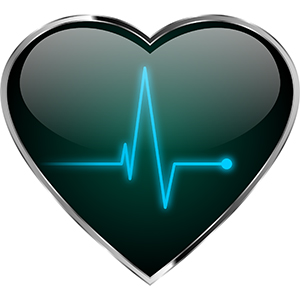Cardiac monitoring during trastuzumab therapy in metastatic breast cancer: early incidence of cardiac dysfunction

Accepted: January 28, 2022
All claims expressed in this article are solely those of the authors and do not necessarily represent those of their affiliated organizations, or those of the publisher, the editors and the reviewers. Any product that may be evaluated in this article or claim that may be made by its manufacturer is not guaranteed or endorsed by the publisher.
Authors
Trastuzumab therapy has dramatically changed breast cancer prognosis. Consensus documents recommend a close monitoring during therapy, not always feasible, especially in metastatic breast cancer. The purpose of this study is to describe trastuzumab cardiotoxicity in metastatic breast cancer patients to understand how to improve cardiovascular monitoring. We retrospectively studied metastatic breast cancer patients scheduled for trastuzumab therapy (2001-2018). All patients underwent a baseline evaluation and monitoring during therapy. Cardiotoxicity was defined as symptomatic heart failure or asymptomatic decrease in left ventricular ejection fraction > 10% from baseline and < 53%. Ninety-two women were included, mean age 61 years (±14.43), median follow-up 42.5 months (IQR 26-74). Fourteen percent developed cardiotoxicity: two heart failure with preserved left ventricular ejection fraction, three heart failure with reduced left ventricular ejection fraction, and eight asymptomatic decreased in left ventricular ejection fraction. Eighty-one percent of cardiac dysfunction cases occurred within the first 4 years and on median of 31 months from trastuzumab initiation. Thus, in metastatic breast cancer patients, trastuzumab-mediated cardiotoxicity occurred more frequently during the first 4 years. These data should be considered to optimize follow-up protocols.
Cardiology Department, University of L'Aquila, Italy
How to Cite

This work is licensed under a Creative Commons Attribution-NonCommercial 4.0 International License.
PAGEPress has chosen to apply the Creative Commons Attribution NonCommercial 4.0 International License (CC BY-NC 4.0) to all manuscripts to be published.
Similar Articles
- Afrah Alsomali, Abdullah Eltayeb, Sarah Aldosari, Maie AlShahid, Aly AlSanei, Ali AlEnazy, Olga Vriz, Recurrence of left ventricular pseudoaneurysm after multiple mitral valve replacements , Monaldi Archives for Chest Disease: Vol. 92 No. 2 (2022)
You may also start an advanced similarity search for this article.

 https://doi.org/10.4081/monaldi.2022.2163
https://doi.org/10.4081/monaldi.2022.2163




